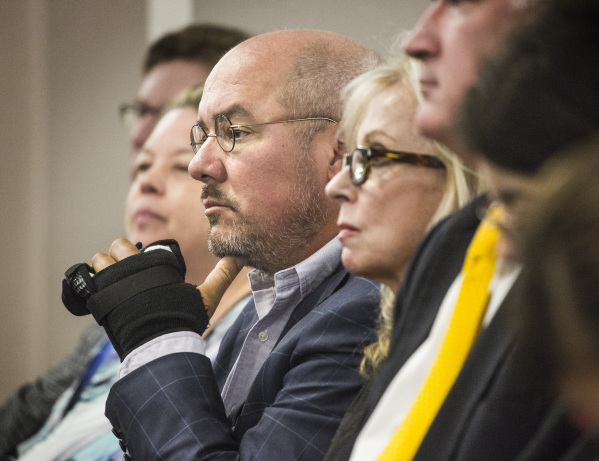Gaming commission approves $1.5 million fine for Caesars

With only brief discussion, the Nevada Gaming Commission on Thursday signed off on a $1.5 million fine agreed to by Caesars Entertainment Corp. for violating federal anti-money laundering programs at the company’s Caesars Palace.
Commissioners took less than 15 minutes to accept the penalty for a 15-count complaint that the gaming company agreed with in a stipulated settlement with the Gaming Control Board.
Only Gaming Commission Chairman Tony Alamo Jr. addressed the fine.
“You shot yourselves in the foot with this one,” Alamo said. “We make mistakes, but let’s not repeat this one.”
Alamo remarked that the fine was “one of the top five fines for the state of Nevada. I’m sure you’re not proud to be on that list.”
Las Vegas gaming attorney Mark Clayton of Greenberg Traurig, representing Caesars, told the Gaming Commission that Caesars Palace had undertaken “extensive remediation efforts to strengthen their casino’s Bank Secrecy Act and anti-money laundering compliance programs.
In February, Caesars hired Benjamin Floyd as senior vice president for anti-money laundering compliance. Floyd originally worked for Wal-Mart Stores Inc.
Floyd, Caesars General Counsel Tim Donovan and Senior Vice President Jan Jones Blackhurst attended the Gaming Commission hearing but did not address the regulators.
According to the complaint, Caesars Palace maintained “highly deficient internal controls” inside the Strip resort’s private gaming salons, had numerous lapses in its anti-money laundering program and didn’t file suspicious transaction activity reports over a three-month period in 2012.
The agreement with state gaming authorities is part of the company’s overall settlement with government agencies to end violations of federal money laundering rules at Caesars Palace. Last week, the company agreed to pay an $8 million civil penalty to federal authorities for repeated violations of the Bank Secrecy Act.
According to the state’s complaint, the Internal Revenue Service conducted a Bank Secrecy Act examination of Caesars Palace from February 2012 through April 2012 and found 37 areas of noncompliance. The Control Board complaint mirrored the charges laid out the federal court filing. FinCen said Caesars failed to adequately monitor transactions coming from Asia through its branch offices for suspicious activity, such as large wire transfers.
Gaming Control Board Chairman A.G. Burnett pointed out that zero instances of actual money laundering were found.
Gaming regulators said the penalty was assessed on Caesars Entertainment Corp. Caesars Palace, the company’s flagship Strip resort, is the only Las Vegas property included in the bankruptcy reorganization of Caesars Entertainment Operating Co., the casino operator’s largest division.
Contact reporter Howard Stutz at hstutz@reviewjournal.com or 702-477-3871. Find @howardstutz on Twitter.